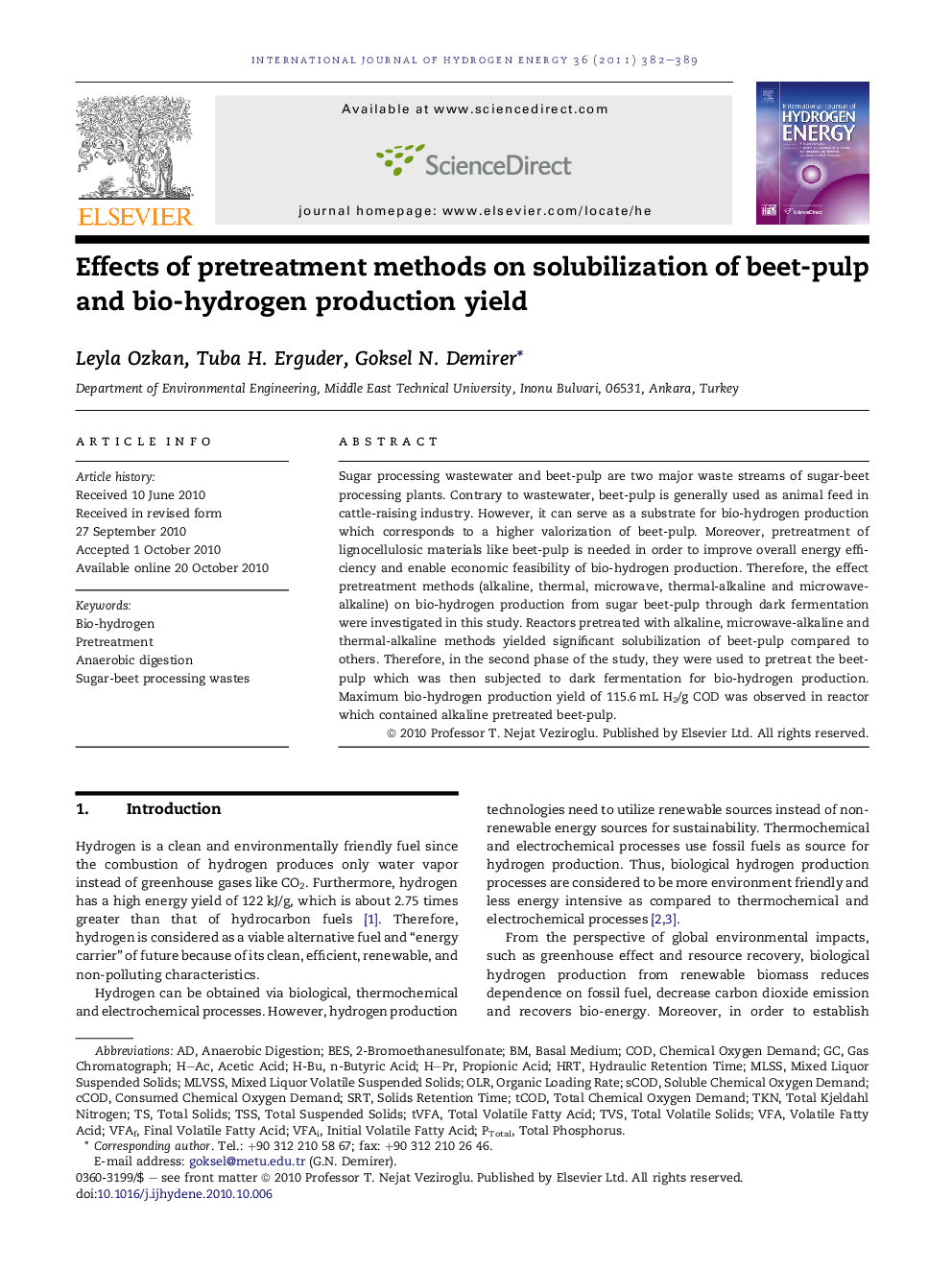| Article ID | Journal | Published Year | Pages | File Type |
|---|---|---|---|---|
| 1277787 | International Journal of Hydrogen Energy | 2011 | 8 Pages |
Sugar processing wastewater and beet-pulp are two major waste streams of sugar-beet processing plants. Contrary to wastewater, beet-pulp is generally used as animal feed in cattle-raising industry. However, it can serve as a substrate for bio-hydrogen production which corresponds to a higher valorization of beet-pulp. Moreover, pretreatment of lignocellulosic materials like beet-pulp is needed in order to improve overall energy efficiency and enable economic feasibility of bio-hydrogen production. Therefore, the effect pretreatment methods (alkaline, thermal, microwave, thermal-alkaline and microwave-alkaline) on bio-hydrogen production from sugar beet-pulp through dark fermentation were investigated in this study. Reactors pretreated with alkaline, microwave-alkaline and thermal-alkaline methods yielded significant solubilization of beet-pulp compared to others. Therefore, in the second phase of the study, they were used to pretreat the beet-pulp which was then subjected to dark fermentation for bio-hydrogen production. Maximum bio-hydrogen production yield of 115.6 mL H2/g COD was observed in reactor which contained alkaline pretreated beet-pulp.
